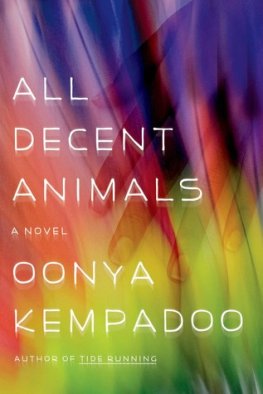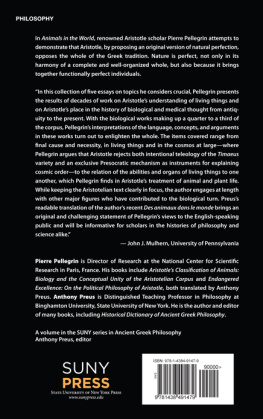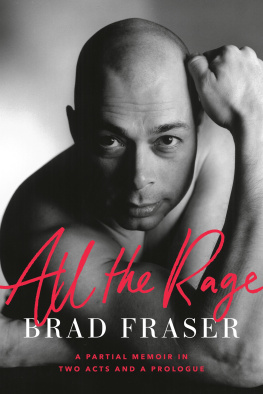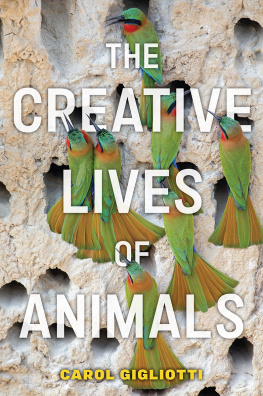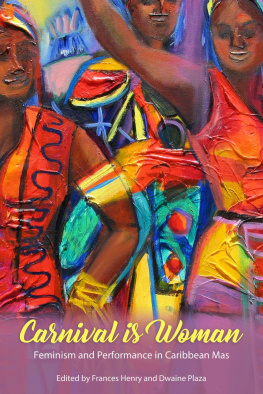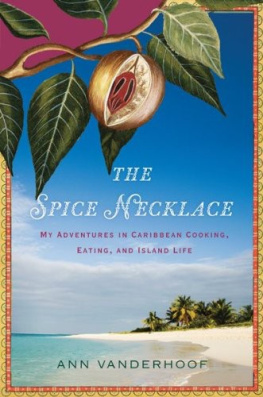Oonya Kempadoo
All Decent Animals
To express is to drive.
And when you want to give something presence,
you have to consult nature.
And there is where Design comes in.
And if you think of Brick, for instance,
and you say to Brick,
What do you want, Brick?
And Brick says to you,
I like an Arch.
And if you say to Brick,
Look, arches are expensive,
and I can use a concrete lintel over you.
What do you think of that,
Brick?
Brick says:
I like an Arch.
LOUIS I. KAHN (19011974), ARCHITECT
FROM THE TIME ATA CAME TO VISIT this place as a shy child she told herself this is a place for adults. From the time them lovely Maracas waves first chewed her up, when she saw teenagers dressed like big people, rich homes flashing TV style everybody rushing, buying food, driving and eating and drinking, picong talk flying she promised herself she would come back to this prancy, peacock island. But she never trusted the perfumed strutting. And Trinidad never promised her anything. Never once invited her. No matter how many times Ata came from her island home. Because Trinidad is a metropolis, she thought. A complicated process and a place busy keeping up with itself, carrying on at a rate. Horrendous rates. Every time, in the taxi from Piarco Airport to Port of Spain, she could see the mess of it right there. All along the road, without shame or design. Ignoring her arrival.
Today the customs man doesnt bother with her bags, he glances at Atas mixed-race complexion. Yuh come back home? he asks, just after Immigration finished giving her hell for visiting the Home of the Greatest Show on Earth, yet again.
Yes, she says. She does live here now.
Outside the shiny cheap-tiled airport, the Indian taxi driver has her bag. Where you going is up a hill? Because my car does cutout on steep hill.
No need to answer. Business as usual. Down the highway. Ata looks out at familiar gaudy shopping malls and incomplete housing schemes, factories, fast-food chains, mosques, the Hindu girls school. On this island of oil, with its asphalt sun and pothole roads, the highways are packed with cars crawling like shiny lice.
They inch through the junction by Nestls compound. Its midday and diesel-dark-skinned vendors comb through heat waves of glittering cars, dripping plastic bags of red pommeracs. Air-conditioned windows roll down. Cool bills for hot fruit. None for the limping polio beggar with his black cracked palm. The taxi man turns up the radio slightly to catch the latest news. A neutral voice offers, Four victims were murdered in the countrys latest fatality A seven-year-old, who survived by hiding under a bed, reports that his father and brother were tied up while his mother and sister were brutally raped in front of them by three men and chopped with cutlasses. All were then shot several times Police say
The taxi man switches off and sucks his teeth loud. Every day is some nonsense, yuh know. What de hell really going on in this place?
As if she, the newcomer/returnee, should know the answer. He doesnt need an answer. Like any Trini living in Trinidad, he has had to find a way to live with the unanswered questions. The same ones that bring Ata back, again and again.
They pass big Indo-Greco homes with icing-cake concrete balustrades, lots of sliding doors, curly wrought iron, and designer features, all locked up; patches of farmlands, with Gramoxone-dead grass borders. And plenty of billboards. White-teeth-smiling Miss World dressed in her airline uniform waves from hers. Bright multirace, happy people gulp down Orchard juice, cheersing each other. Trendy cricket heroes toast, with Pepsi and cell phones. Restbest Mattress is De Best.
They bypass town and the ex railway terminal, the Sea Lots shantytown stretching up to Laventille, and the La Basse dump that leaks human scavengers and corbeau vultures, heading over the hills. Some people don like passing this way, yuh know, the driver tells Ata, cause of what them fellas used to do up so.
I know, she says, and shifts herself to admire the Northern Range. There, behind Barataria, Tunapuna, and Arima, in the distance. These hills are the ones to watch. Blue-gray soft in the rainy season, hard and fire-scarred in the dry season, they talk. Incessant, annoying, fanning and waving and calling. They laugh, they mock the radio, echoing whatever they hear. They are part of it, she knows. Plumage of the peacock island. How to live with the ugliness of the beauty we love? Or die with it? If you think living is difficult, try dying, Fraser had said.
* * *
She had walked straight into Camp Swampy, on her return to Port of Spain as a young adult, eight years ago. This was the worst of Slingers Carnival-costume centers. But it was work that Ata had negotiated wages for. She felt she had a right to enter any Caribbean territory, or anywhere in the world for that matter, and work and participate and carry on as normal, and not feel like an illegal island immigrant. Growing up hearing about Caricom ideals and global citizenship, Ata felt Caribbean, not Dominican, not Guyanese, not Trinidadian a true no-nation.
This in-between feeling, neither one nor the other, moved her from island to island, from Europe to the Caribbean, without obligation to either. A nonbelonger. Unrooted in place and race and in herself. Each island, each time, as she saw the secrets of the land and the lying creases of the culture, she found out something about herself. Unsettling things, not to be proud of, detaching until she sometimes felt outside her own body. But at the same time unretractably entwined in it all. A disappointed accomplice locked in but able to share remarkable, particular treasures.
She walked away from her village cocoon of books and dreaming, from alien European attempts to draw out the talent in her hands, talent that she felt was there like green juice in a leaf, pulsing. Practice and apprenticeship, she thought. Her father had warned her, Independence is only real when you are outside of the rat race! Work for what you want, Atalanta, but dont worry with this nonsense of working your way up the ladder. Hierarchy is oppression! But Ata knew that money is what bought independence. So she took what she could of her fathers words, gathered the strength and patience her mother used to cope with her father and stepped into Camp Swampy. Straight into the cussing, roughing, gnarly hell of Carnival production boiling day and night to the explosion.
Ata stops, tentative, just inside the gate. The ugly old house with its burglarproofed veranda is crammed full of cloth and poles. The small, scrappy yard exhales a mouthful of bad breath. A stench of glue, fabric paint, stale sweat, cigarette butts, alcohol, piss, and stress. Prepared in cap and overalls, she climbs the littered steps and enters. The floorboards give under her slight frame. She moves forward cautiously and stops at the scream of a cutting machine controlled by a shirtless man. On a huge table, thick layers of bloodred fabric are spread with cardboard shapes, laid like a puzzle. The cutter man guides the blade, pressing and pushing the heavy beast. It whines and chews, spitting out red dust. The man shoves a sliced wad out of his way and braces himself again, cigarette dangling out of his mouth, ignoring her presence. She waits for a while, hearing more commotion in other rooms above the noise. Eventually she calls out to the cutter man. He is the same mix as she is but darker, straight dougla, black and Indian, wiry and tough. After a while he turns off the machine, brushes cigarette ash and red fluff from his chest, and finally grunts at her. He shouts to the back of the house, that a young boy is here to see Francisco.

